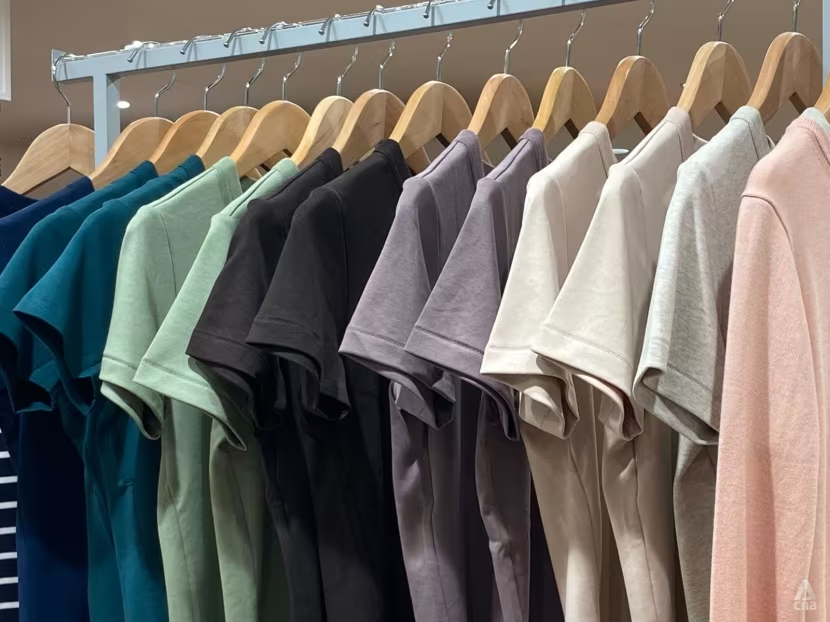In Kenya’s bustling fashion scene, we all have those beloved pieces – a perfect Kitenge print dress, a comfortable pair of jeans, or a sharp work shirt – that we wish could last forever. With the rising cost of living and a growing awareness of sustainable practices, making our clothes last longer isn’t just a matter of saving money; it’s a smart, eco-friendly choice.
At Retail Place, we believe in mindful consumption. Here are essential tips for extending the life of your favorite garments, keeping them looking their best, and reducing your contribution to textile waste.
Read and Respect the Care Labels
This is the golden rule of clothing care, yet often overlooked! The small tag inside your garment holds crucial instructions from the manufacturer, tailored to that specific fabric and construction.
- Symbols Decoded: Familiarize yourself with common laundry symbols (e.g., wash temperature, bleaching instructions, drying methods, ironing heat). A quick search online for “laundry symbols Kenya” can help if you’re unsure.
- Follow Guidelines: If it says “hand wash only,” believe it. If it says “do not tumble dry,” listen. Ignoring these instructions is a fast track to shrinkage, fading, or damage.
Wash Less, Wash Smarter
Frequent washing is one of the biggest culprits of wear and tear.
- Don’t Overwash: Does that shirt really need a wash after just one wear? If it’s not visibly dirty, sweaty, or smelly, consider airing it out or spot cleaning instead of a full wash. Jeans, sweaters, and jackets rarely need washing after every wear.
- Sort Your Laundry: Separate clothes by color (lights, darks, colours) to prevent dye transfer, and by fabric type (delicates, heavy cottons, synthetics) to protect more fragile items from abrasive ones.
- Use Cold Water: Washing in cold water is gentler on fabrics, helps prevent colours from fading, and significantly reduces energy consumption. For most everyday clothes, cold water is perfectly effective.
- Choose the Right Detergent (and Amount): Use a mild, good-quality detergent. Using too much detergent can leave residue on clothes, making them stiff and attracting more dirt. Use the recommended amount for your load size.
- Turn Clothes Inside Out: This protects the outer surface, especially for dark colours, printed items, or embellished garments, reducing fading and pilling.
- Use Mesh Laundry Bags: For delicate items like lingerie, hosiery, or anything with embellishments, a mesh bag protects them from snagging or stretching in the machine.
Master the Drying Process
The dryer, while convenient, can be harsh on fabrics.
- Air Dry Whenever Possible: This is the gentlest method. Hang clothes on a line in the sun (for whites/lights to bleach naturally) or in the shade (for darks to prevent fading). For delicates and knits, lay them flat on a clean, dry surface to prevent stretching.
- Avoid Over-Drying: If you must use a dryer, use a low heat setting and remove clothes while they are still slightly damp to prevent shrinkage, fabric weakening, and excessive wrinkling.
- Shake & Hang Immediately: As soon as clothes are out of the wash or dryer, give them a good shake and hang them properly to reduce wrinkles and maintain their shape.
Store Your Clothes Properly
How you store your garments can significantly impact their longevity.
- Clean Before Storing: Ensure clothes are clean and completely dry before putting them away to prevent mildew, mould, and pest damage, especially in Kenya’s humid climates.
- Use Appropriate Hangers:
- Padded or Wooden Hangers: Ideal for blouses, jackets, and delicate items to maintain shoulder shape.
- Avoid Wire Hangers: They can warp and stretch garments over time.
- Fold Heavy Knits: Sweaters and heavy knitwear should be folded on shelves or in drawers, not hung, to prevent stretching and distortion.
- Give Them Space: Don’t cram your closet. Clothes need air circulation to stay fresh and prevent wrinkles.
- Protect from Dust & Pests: For long-term storage of seasonal or special occasion wear, use breathable garment bags. Consider natural repellents like cedar blocks or lavender sachets.
Repair and Maintain Proactively
Don’t wait until it’s too late!
- Address Stains Immediately: The faster you treat a stain, the higher the chance of complete removal. Research specific stain removal methods for different fabrics.
- Mend Small Damages: A loose button, a small tear, or a fallen hem can quickly worsen. Learn basic sewing skills or visit your local Kenyan tailor for quick, affordable repairs. This is a common and highly valued skill in Kenya!
- Care for Zippers and Buttons: Ensure zippers are fully closed during washing to prevent damage to other garments. Re-stitch loose buttons promptly.
- Shoe Care: Clean and polish your shoes regularly. Repair worn soles or heels as soon as they show signs of wear. Use shoe trees to maintain their shape and absorb moisture.
Rotate Your Wardrobe
Just like you rotate your tires, rotating your clothes gives them a break. Wearing the same items day in and day out will naturally lead to faster wear and tear. By having a good rotation, each piece gets rest and recovery.
By adopting these simple, practical habits, you’re not just taking better care of your clothes; you’re also embracing a more sustainable lifestyle. Extending the life of your favorite garments means less waste, less spending, and a wardrobe that continues to bring you joy, season after season.









